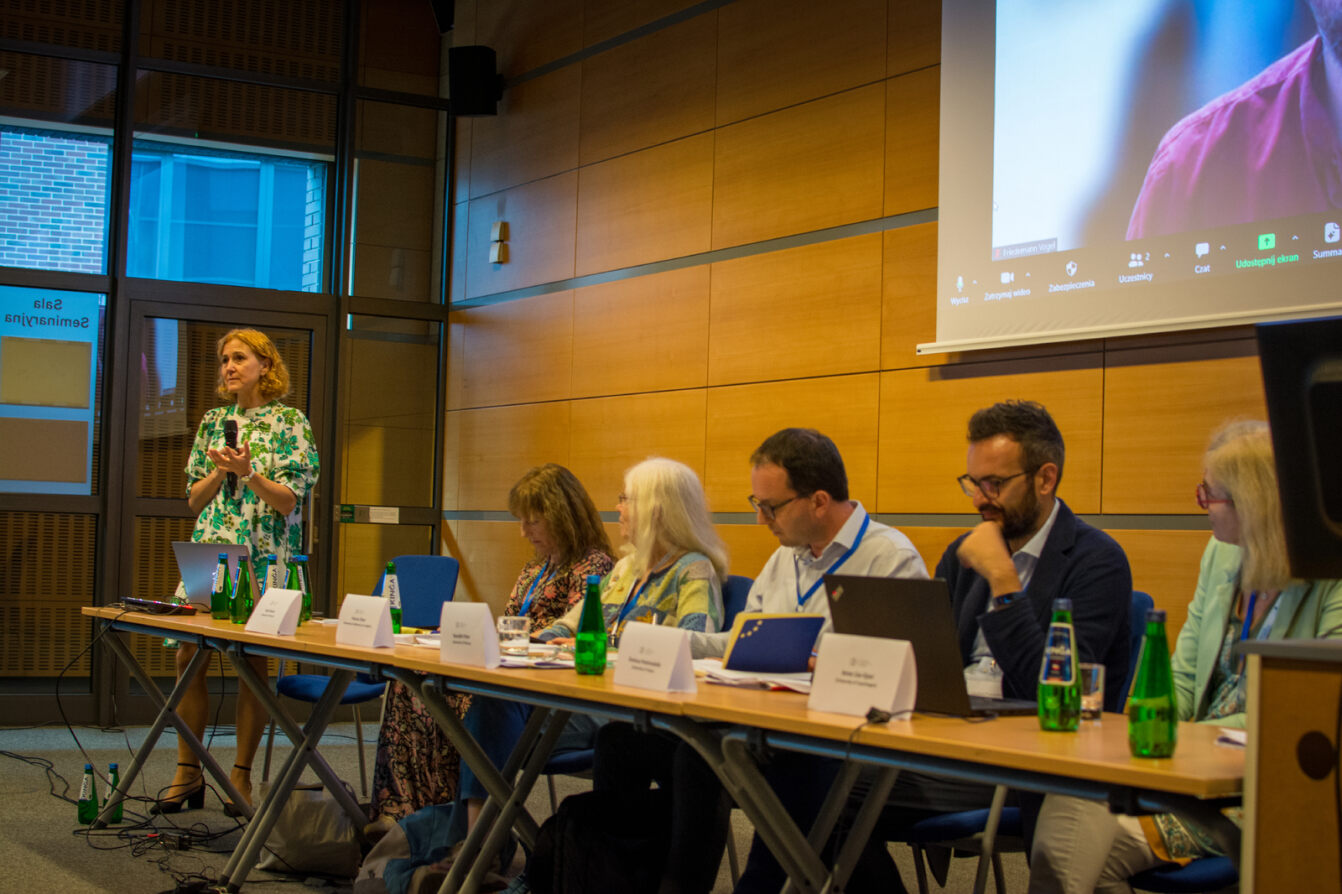ORGANIZER: The International Language and Law Association in cooperation with Centre of Excellence iCourts at the Faculty of Law, University of Copenhagen
TIME & DATE: 28 – 29 November 2024
PLACE: The University of Copenhagen Faculty of Law, Njalsgade 76, 2300 Copenhagen S
PARTICIPATION AND EXPENSES: The course costs 75 EUR, which covers food, drinks, and a dinner during the course.
DEADLINE FOR APPLICATION: 1 October 2024. Please use this form [link to be inserted] to apply for acceptance at the PhD Course.
ECTS: 2
Description
Most PhD projects in the field of language and law / law and language are ‘born interdisciplinary’. While most scholars will agree that this is undoubtedly the case, what interdisciplinarity may mean and imply, is not equally clear. Thus, interdisciplinarity has not been a recurrent theme in scholarship in the field, and reflections on what interdisciplinarity means for the research interests and research designs has not been addressed and developed sufficiently among PhD students in the field.
This course intends to fill this gap.
In applied linguistics and in LSP research, legal language has for decades attracted language scholars’ attention. In law, legal scholars focusing on legal interpretation and argumentation have been working with language theories for centuries. More recently, after the empirical turn in law, linguistics has attracted increasing attention among legal and socio-legal scholars and today provides alternative or complementary methods for legal research such as corpus linguistics and discourse analysis. Finally, in translation studies and comparative law, the languages of different legal systems has been the object of study of both language scholars and lawyers. This is not an exhaustive account of all law and language or language and law scholarship; however, it is fair to say that it covers important strands in the current interdisciplinary field. At the same time, is seems obvious that the research interests of scholars engaged in the corners of the field thus depicted differ vastly.
Motivation
The course is motivated by an observation that the ability to move more effortless across different methods, either in order to triangulate, or simply because of the nature of the research question is needed in interdisciplinary research. Moreover, the course is motivated by an interest in matching an increased interdisciplinary awareness with contemporary requirements of social and academic impact, including the dissemination and communication of research results to external audiences and broader communities (the general public; practicing lawyers and linguists). Finally, the course is motivated by the dilemma that research funding bodies attach increasing importance to interdisciplinarity, while universities, publication outlets, and career opportunities are
less geared to accommodate interdisciplinary research and researchers.
Target group
The course is targeted at PhD students who, irrespective of their disciplinary background, study the role of language in law, study the characteristics of legal language and legal texts, or employ
linguistic methods in the study of law. Both PhD students whose projects are interdisciplinary as a key feature of their initial design (‘born interdisciplinary’), and students who move towards interdisicplinarity as a result of an expanded research design (‘becoming interdisciplinary’) are welcome. The course is targeted at language and law scholars in all stages of their PhD projects. We encourage researchers from law and linguistics as well as social science disciplines to apply.
Academic Aims
Upon completion of the course, participants will be able to:
- Understand basic concepts and categories of interdisciplinary research in general and in language and law research in particular
- Reflect on the background assumptions inherent in their disciplinary background
- Understand the background assumptions inherent in other scholars’ disciplinary backgrounds
- Adapt presentations of their research projects to audiences with another disciplinary background
- Integrate reflections on interdisciplinarity in their research projects
Preliminary programme
One week before the course:
Hand-in of assignment 1: Abstract of the PhD project, focusing especially on the interplay between language and law in the project
First day of the course:
- Morning session: On interdisciplinarity in language and law / law and language scholarship
Urska Sadl
Zuzanna Godzimirska
Anne Lise Kjær - Afternoon session: Working groups working on Assignment 1
- Evening: Hand-in assignment 2: What is the epistemological interest (Erkenntnisinteresse) of your project –what do you want to achieve, what gap in what scientific field do you intend to fill?
- Dinner
Second day of the course:
- Morning session: On the challenges of interdisciplinary research
Mikael Rask Madsen
Louise Victoria Johansen
Jakob v. H. Holtermann - Afternoon session: Working groups on Assignment 2
- Farewell reception with music and drinks
One week after the course:
Hand-in of assignment 3: Reflection paper on the interdisciplinary research design and / or research interest of your project.
Suggested readings:
Douglas W. Vick: “Interdisciplinarity and the Discipline of Law”, Journal of Law & Society, Vol. 31
(2004), pp. 163-193
Roger Cotterrell: ”Why Must Legal Ideas be Interpreted Sociologically?”,
Journal of Law & Society Vol. 25 (1998), p. 171 at 174-175
Lisa R. Lattuca: ‘Creating Interdisciplinarity: Grounded Definitions from College and University
Faculty’, History of Intellectual Culture, 2003, Volume 3, No. 1
James Boyd White, Justice as Translation (1994)
Stanley Fish: "Being Interdisciplinary Is So Very Hard to Do," Profession 89, 15-22

